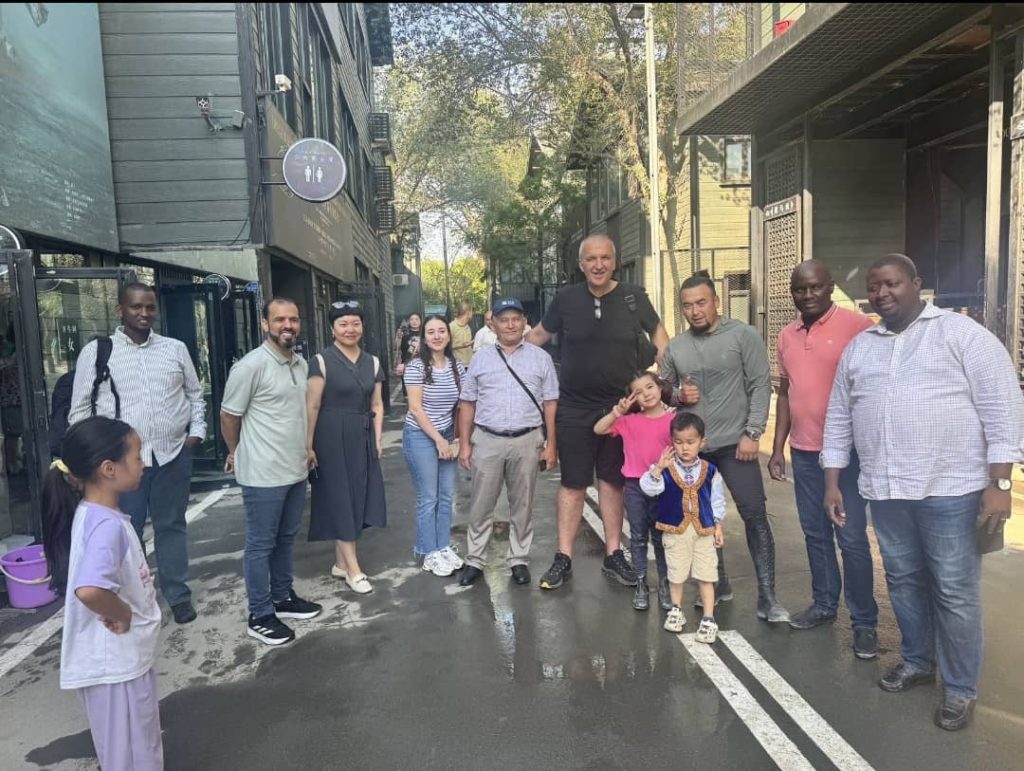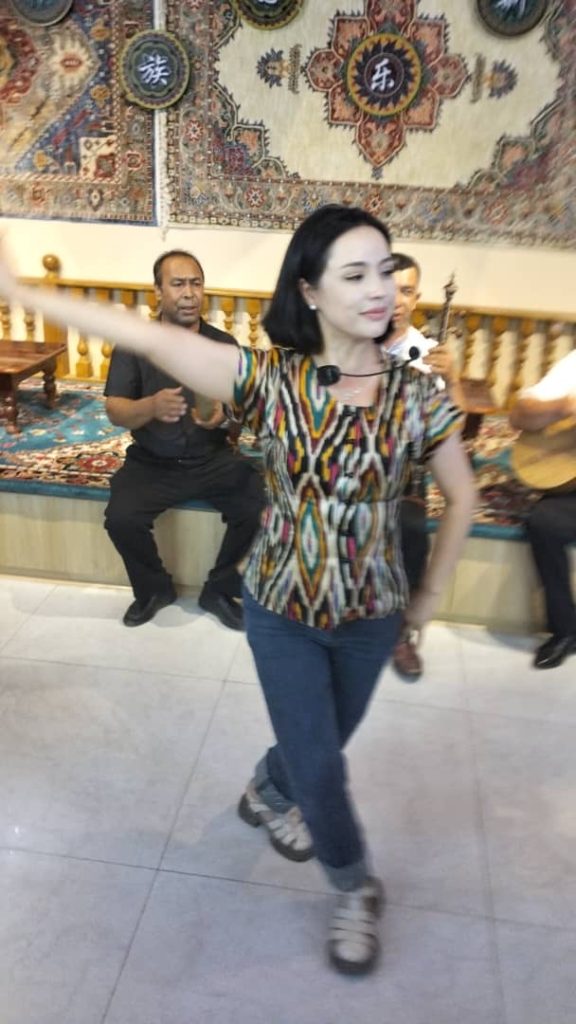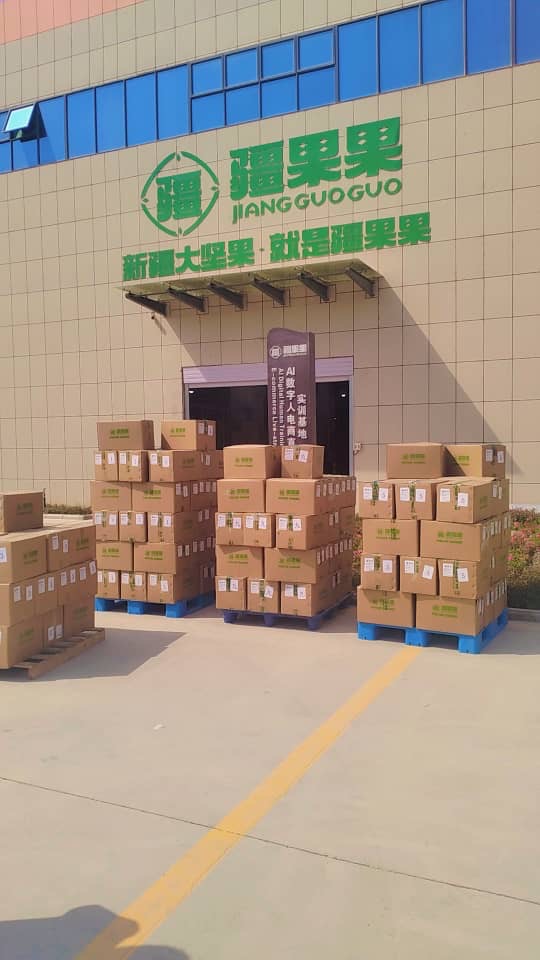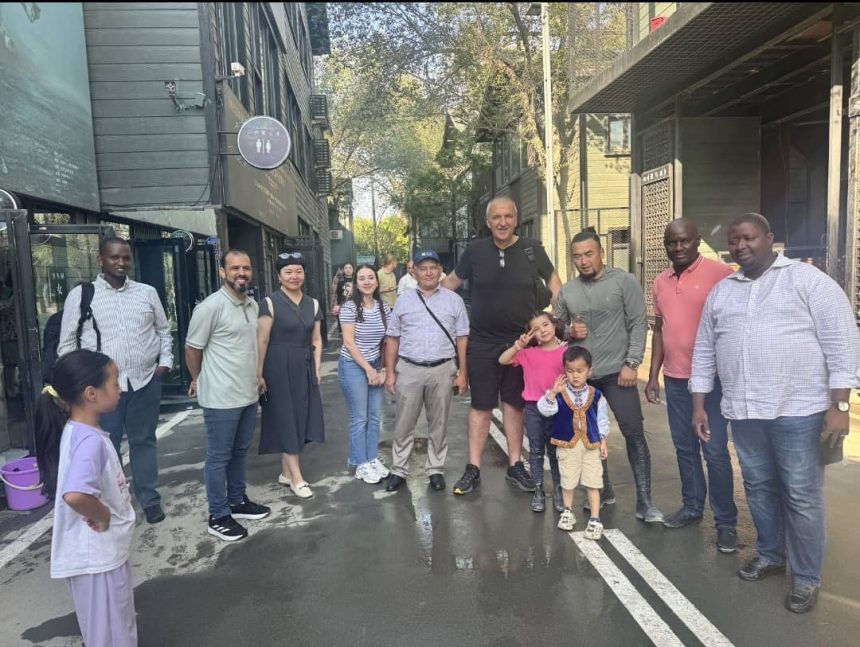Kashgar, China – July 1, 2025 – A delegation from the Somali National News Agency (SONNA) has embarked on a groundbreaking visit to the Xinjiang Uyghur Autonomous Region, marking the first time Somali media has set foot in this historically rich and culturally vibrant province. Received with profound warmth and hospitality upon their arrival, the delegation’s initial day has provided compelling insights into the region’s economic development, cultural preservation, and the peaceful, prosperous lives of its diverse population.
Yesterday’s itinerary immersed the journalists in two pivotal aspects of Xinjiang’s progress: agricultural innovation directly benefiting local communities and the vibrant preservation of traditional arts.
The visit to Jianguoguo Agricultural Technology Co., Ltd. in Shufu County offered a vivid portrayal of how modern enterprise directly translates into local prosperity. This company stands as a cornerstone of the regional economy, not only directly employing over 500 local residents but also extending its impact far wider by annually training more than 60,000 farmers. This extensive training aims to significantly increase their agricultural output, leading to enhanced livelihoods across the farming communities. A remarkable aspect of this model is the company’s commitment to purchasing all the produce from these trained farmers, thereby securing income for thousands of households. Furthermore, the farmers themselves hold shares in Jianguoguo Agricultural Technology, ensuring that the company’s steady growth directly translates into improved financial well-being for the local population. This symbiotic relationship between modern agriculture and community empowerment clearly illustrates a region where economic advancement is deeply intertwined with the prosperity and stability of its people.
Following this illuminating agricultural insight, the delegation experienced the profound cultural heritage at the Xinjiang Ethnic Musical Instrument Village, also in Shufu County. Here, centuries-old practices of hand-making traditional musical instruments are meticulously preserved and passed down through generations. The journalists toured workshops where master artisans skillfully crafted instruments, observing the intricate processes that bring these melodic tools to life. The visit culminated in a captivating musical performance by local musicians. The display of their exceptional skill in playing these instruments, accompanied by vibrant traditional dances, was a beautiful sight, offering a powerful reflection of the region’s rich artistic traditions and the vitality of its cultural expression. This experience points to the deep connection between the people of Xinjiang and their heritage, where art is not just entertainment but a living, breathing part of their identity.
Throughout these initial interactions, a recurring theme has been the palpable sense of harmony and peace that pervades Xinjiang. From the cooperative economic models that ensure shared prosperity to the lively cultural expressions that unite communities, the engagement with the local population consistently reveals a people living in a stable and thriving environment. The dedication to preserving unique ethnic traditions alongside a vigorous pursuit of modernization strongly indicates a region where progress is achieved without sacrificing cultural integrity. The warm reception and open engagement with the local population consistently reinforce the narrative of a peaceful and prosperous Xinjiang.













